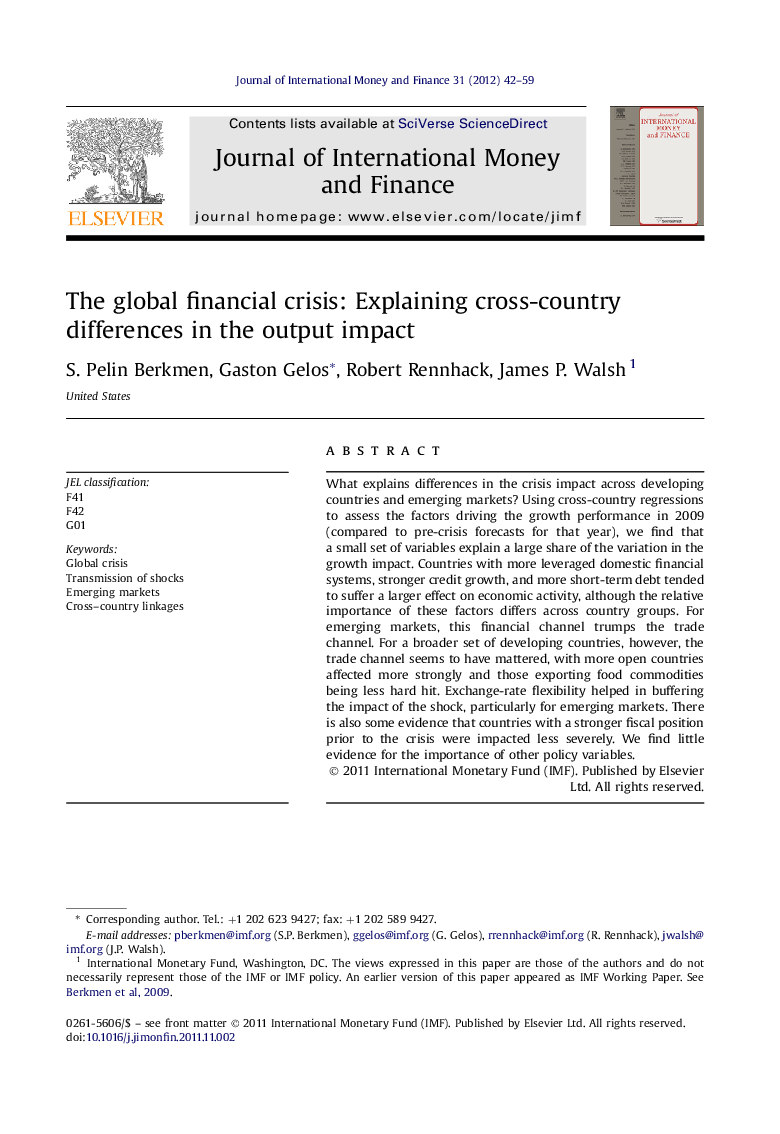| Article ID | Journal | Published Year | Pages | File Type |
|---|---|---|---|---|
| 964087 | Journal of International Money and Finance | 2012 | 18 Pages |
Abstract
What explains differences in the crisis impact across developing countries and emerging markets? Using cross-country regressions to assess the factors driving the growth performance in 2009 (compared to pre-crisis forecasts for that year), we find that a small set of variables explain a large share of the variation in the growth impact. Countries with more leveraged domestic financial systems, stronger credit growth, and more short-term debt tended to suffer a larger effect on economic activity, although the relative importance of these factors differs across country groups. For emerging markets, this financial channel trumps the trade channel. For a broader set of developing countries, however, the trade channel seems to have mattered, with more open countries affected more strongly and those exporting food commodities being less hard hit. Exchange-rate flexibility helped in buffering the impact of the shock, particularly for emerging markets. There is also some evidence that countries with a stronger fiscal position prior to the crisis were impacted less severely. We find little evidence for the importance of other policy variables.
Related Topics
Social Sciences and Humanities
Economics, Econometrics and Finance
Economics and Econometrics
Authors
S. Pelin Berkmen, Gaston Gelos, Robert Rennhack, James P. Walsh,
